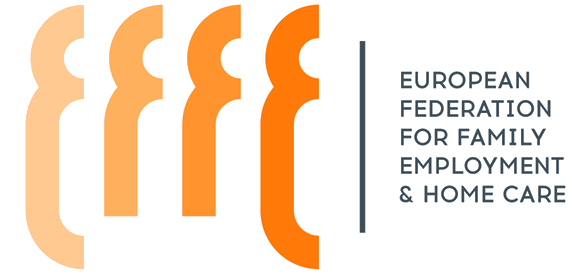

EU social partners – UNI Europa, EFFAT, EFFE and EFSI – launched a joint project aimed at “building an EU Sectoral Social Dialogue and Collective Bargaining capacity in Personal and Household Services (PHS).”
Description of the Project
In 2023, the EU social partners – employers and trade unions organisations – in Personal and Household Services (PHS) – UNI Europa, EFFAT, EFFE and EFSI – launched their two-year EU co-financed project ‘PHSDialogue’.
PHS has been defined by the European Commission as “a broad range of activities that contribute to well-being at home of families and individuals: childcare (CC), long term care (LTC) for the elderly and for persons with disabilities, cleaning, remedial classes, home repairs, gardening, ICT support, etc”.
The project aims to build an EU Social Dialogue and strengthen social partners’ capacity and collective bargaining.
The COVID-19 pandemic underlined the structural weakness of EU Member States’ care systems as well as the essential role of care workers. Despite policymakers’ efforts to address these weaknesses and recognise care work, many challenges persist, chief among them low collective bargaining coverage, lack of trade union and employer representation.
This is crucial as Eurofound’s Industrial Relations landscape report acknowledged that Personal and Household (PHS) activities form an increasingly important part of the human health and social services. Meanwhile, the EU Care Strategy emphasised a shift to homecare services provision and different services provision models, which needs to go hand in hand with the creating an equal playing field and fair competition for all.
The project engages in numerous activities, including:
- Map the key players in the PHS sectors
- Publish a Collective Bargaining & Social Dialogue report
- Create a PHS Employment Monitor
- Organise Social Dialogue meetings
- Establish Sectoral Observatories at the national level
- Organizing workshops for unions
- Capacity-building workshops for employers organisations
The project is part of the commitment enshrined in the PHS social dialogue work programme for 2023/2024, and will be followed up with another project.
The Project Consortium
EFFAT is the European Federation of Food, Agriculture and Tourism Trade Unions. As a European Trade Union Federation representing 120 national trade unions from 35 European countries, EFFAT defends the interests of more than 22 million workers employed along the food chain. EFFAT is a member of the ETUC and the European regional organisation of the IUF.
EFFE, the European Federation for Family Employment & Homecare, represents the interests of national stakeholders operating in the field of direct employment. This model is characterised by a contractual work relationship between two private individuals, without any trading or profit-making objective.
EFSI, the European Federation for Services to Individuals, is the voice of the Personal and Household Services industry at European level, representing national associations, employers’ organisations, PHS providers and companies involved in the development of personal and household services, and currently operating in 21 EU Member States.
UNI-Europa is the European Trade Union Federation for 7 million service workers. It speaks for the sectors that constitute the backbone of economic and social life in Europe. Headquartered in the heart of Brussels, UNI Europa represents 272 national trade unions in 50 countries, including: Commerce, Banking Insurance and Central Banks, Gaming, Graphical and Packaging, Hair and Beauty, Information and Communication Technology Services, Media, Entertainment and Arts, Postal Services and Logistics, Private Care and Social Insurance, Industrial Cleaning and Private Security, Professional Sport and Leisure, Professionals/Managers and Temporary Agency Workers.
Deliverables
As part of the project, the EU Social Partners for Personal & Household Services (EFFAT, EFFE, EFSI, and UNI Europa) launched the first ever PHS Employment Monitor: the largest European survey for PHS workers, employers, user-employers, and service users. Over 4,000 responses were collected from workers, over 2,000 from service users and user-employers, and 157 from provider companies and organisations, for a total of 6523 responses across 27 countries. The results of the Monitor point out to a set of interconnected challenges and possible solutions in identifying and addressing the root causes of the problems facing the PHS sectors, as told by the workers, users, and provider organisations who know them best.
For more information see:
- EFFAT, EFFE, EFSI, and UNI Europa Joint Statement on Eurofund’s Industrial Relations Landscape Report
- EFFAT, EFFE, EFSI, UNI Europa Joint Statement on the European Care Strategy